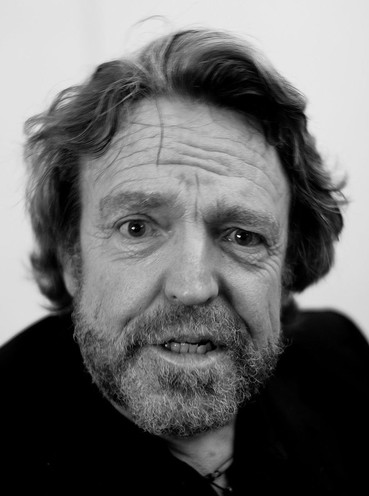RIP John Perry Barlow (1947-2018)
 There's a certain irony about the fact that John Perry Barlow, who styled himself "cognitive dissident" and whose early 1990s writings set the tone of so much discourse about the internet and inspired so many thousands of activists, has died in the same week that Conde Nast has put up a paywall around Wired, the magazine of record of that era. If you haven't crossed the free limit, I can recommend Steven Levy's obit.
There's a certain irony about the fact that John Perry Barlow, who styled himself "cognitive dissident" and whose early 1990s writings set the tone of so much discourse about the internet and inspired so many thousands of activists, has died in the same week that Conde Nast has put up a paywall around Wired, the magazine of record of that era. If you haven't crossed the free limit, I can recommend Steven Levy's obit.
I first encountered Barlow when I began writing about computer crime, around 1990, and called the office of the newly formed Electronic Frontier Foundation, which Barlow co-founded with John Gilmore and Mitch Kapor. A chat with Mike Godwin produced, soon afterwards, a fat paper folder Barlow's founding documents, "Crime and Puzzlement", parts one and two, along with a Harper's Forum discussion of computer hacking and the disproportionate law enforcement response. The first Computers, Freedom, and Privacy to get hackers and law enforcement talking to each other soon followed. I finally met the man himself at my first CFP in 1994.
Barlow's ideas are everywhere in modern internet activism. The EFF itself became a role model for dozens of other digital rights organizations across the world, including Britain's Open Rights Group, which was originally pitched as "a British EFF". The Economy of Ideas: Selling Wine Without Bottles, written in 1992-1993, discusses the "crisis in intellectual property" and how creators will make a living, issues still with us today. EFF has a helpful archive of his internet-related writing, and all of it is worth reading whether or not you agree with him or think, as Barlow claimed Kapor did, that he needed a hyperbolectomy.
His most famous piece, A Declaration of the Independence of Cyberspace, met with embarrassment from many of us when he wrote it in 1996. Yet of everything he wrote it's the one that is still the most widely cited, critiqued, and discussed. To many of us at the time the notion that government had no role to play in cyberspace was either naive or too libertarian for words. In a contemporaneous critique, Reilly Jones (PDF) said Barlow's vision would lead inexorably to universal tyranny. It was clear in conversation with Barlow that he thought the internet was creating libertarians by the million, but I thought government regulation would be an inevitable consequence of ecommerce, and that people would be quick to welcome it to protect them from fraud, theft, and other crimes.
It was clear to anyone who'd talked with him, though, that the ideas he expressed in A Declaration were not the work of a moment's anger at the passage of the Communications Decency Act as part of the 1996 Telecommunications Act. In April 1995, in an interview for the Guardian, he told me, "Cyberspace is naturally sovereign for a variety of reasons...If the terms and conditions of the place are so different from the terms and conditions of the colonial power, sooner or later it becomes obvious that it makes better sense for it to be self-ordering or self-governing." His example was the British Empire: "One of the things that happened quite frequently with the British empire is that Britain realized that from a purely economic standpoint its self-interest was better served by a more or less equal relationship with the former colony as a member of the Commonwealth rather than having it as being an ungovernable, restless, and angry colony. And that analogy applies very well in this instance, because the citizens of cyberspace are going to become more restless and intractable as time goes on, and less willing to be governed by terrestrial principles."
So it's no surprise that 20 years later, Barlow told Wired he stood by its central concept: that cyberspace has a "natural immunity" to nation-state interference. Around the same time he called Wikileaks a "foreign power".
The world he wrote about has both changed and stayed the same. "Cyberspace" dates his views terribly: it's an increasingly meaningless concept to those who've never had to wait to connect, and for whom everything they do online is inextricably entangled with their physical lives. Many younger people are not, as they're so often called, "digital natives", but people to whom the internet has always been a giant surveillance platform delivering cat videos and homework. Yet the battles he wrote about - the right to use encryption, copyright, privacy, openness - are all still being hammered out all around us. So is the key piece of the reason to found the EFF, which he expressed in Crime and Puzzlement, part 2, as "to ensure that the Constitution will continue to apply to digital media". Politicians have long been fond of saying that what is illegal offline should be illegal online, but are less fond of saying the equally important converse: what is legal offline should be legal online.
In his obit for TechDirt, Godwin suggests that in dissecting Barlow's A Declaration we all missed the point. Barlow, he writes, "was writing to inspire activism, not to prescribe a new world order, and his goal was to be lyrical and aspirational, not legislative." In that, Barlow certainly succeeded.
Illustrations: John Perry Barlow.
Wendy M. Grossman is the 2013 winner of the Enigma Award. Her Web site has an extensive archive of her books, articles, and music, and an archive of earlier columns in this series. Stories about the border wars between cyberspace and real life are posted occasionally during the week at the net.wars Pinboard - or follow on Twitter.